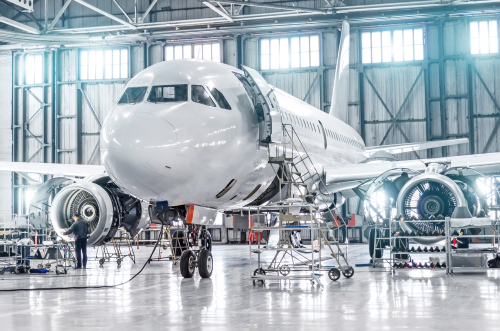
Choosing a program of study is a major decision. It influences your future career options and in large part determines how you are likely to spend your professional life. When you choose to study engineering, you are making what statistics indicate is a smart choice. With just a bachelor’s degree, engineers of various disciplines can expect to earn as much as $3.5 million over a lifetime of work. An aerospace engineer is a professional who designs aircraft and spacecraft. If this is calling your name, the first step toward reaching that goal is to plan out your educational path.
Degree Options
For aspiring aerospace engineers, a bachelor’s degree is an absolute must. As you might expect, many prospective students begin their academic preparation by selecting a bachelor’s degree program. Before you choose to do that, consider whether an advanced degree might help you reach your career goals.
For example, if you long for a position in research and development, you may need a master’s degree to get there. If you expect to need a master’s degree at some point, you may want to look into five-year programs that culminate in both a bachelor’s and a master’s degree as well as traditional four-year bachelor’s degree programs.
No matter which type of program you choose, your curriculum as an aerospace engineer will cover certain topics. Accredited aerospace engineering programs will expose students to:
- mechanics
- structures
- stability and control propulsion
Aerospace engineering students will study the basic engineering principles common to all engineering disciplines. They will be expected to have proficiency in mathematics, physics and other sciences. A cornerstone of an aerospace engineering education is the study of aerodynamics, or the interactions between moving objects and air. Courses will include lecture and laboratory work. Completing an internship or cooperative partnership is an excellent way for students to begin getting the real-world experience they will need.
Obtaining Licensure
A bachelor’s degree alone can qualify candidates for entry-level aerospace engineering positions, but most experienced engineers choose to seek their professional engineer (PE) license, according to the United States Bureau of Labor Statistics.
This requires work experience, a degree, and the completion of two examinations, the Fundamentals of Engineering and Professional Engineering exams. Many candidates take the first of these exams immediately after graduating to become official “engineers in training.” As they gain more experience, they prepare to take additional exams to become licensed engineers.
Conclusion
Skills in mathematics, critical thinking and analytical design are crucial abilities for becoming an aerospace engineer. But these characteristics alone won’t lead to success. As an aspiring aerospace engineer, you must take your education seriously, and that begins with choosing the degree path that is right for you. Whether you earn just a bachelor’s degree or pursue an advanced education, making the most out of your studies and your firsthand experience will set the stage for your success.
Related Resources:
